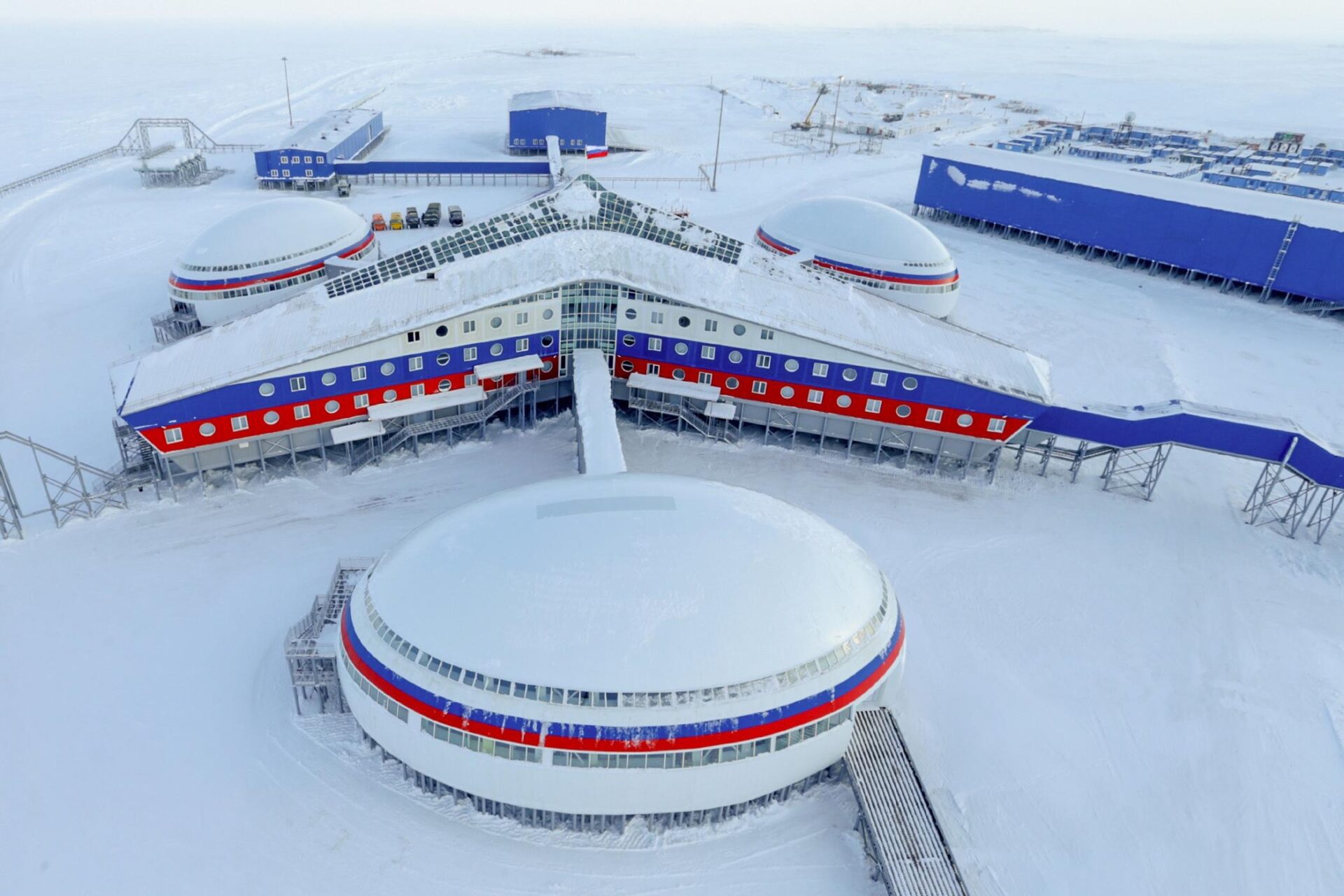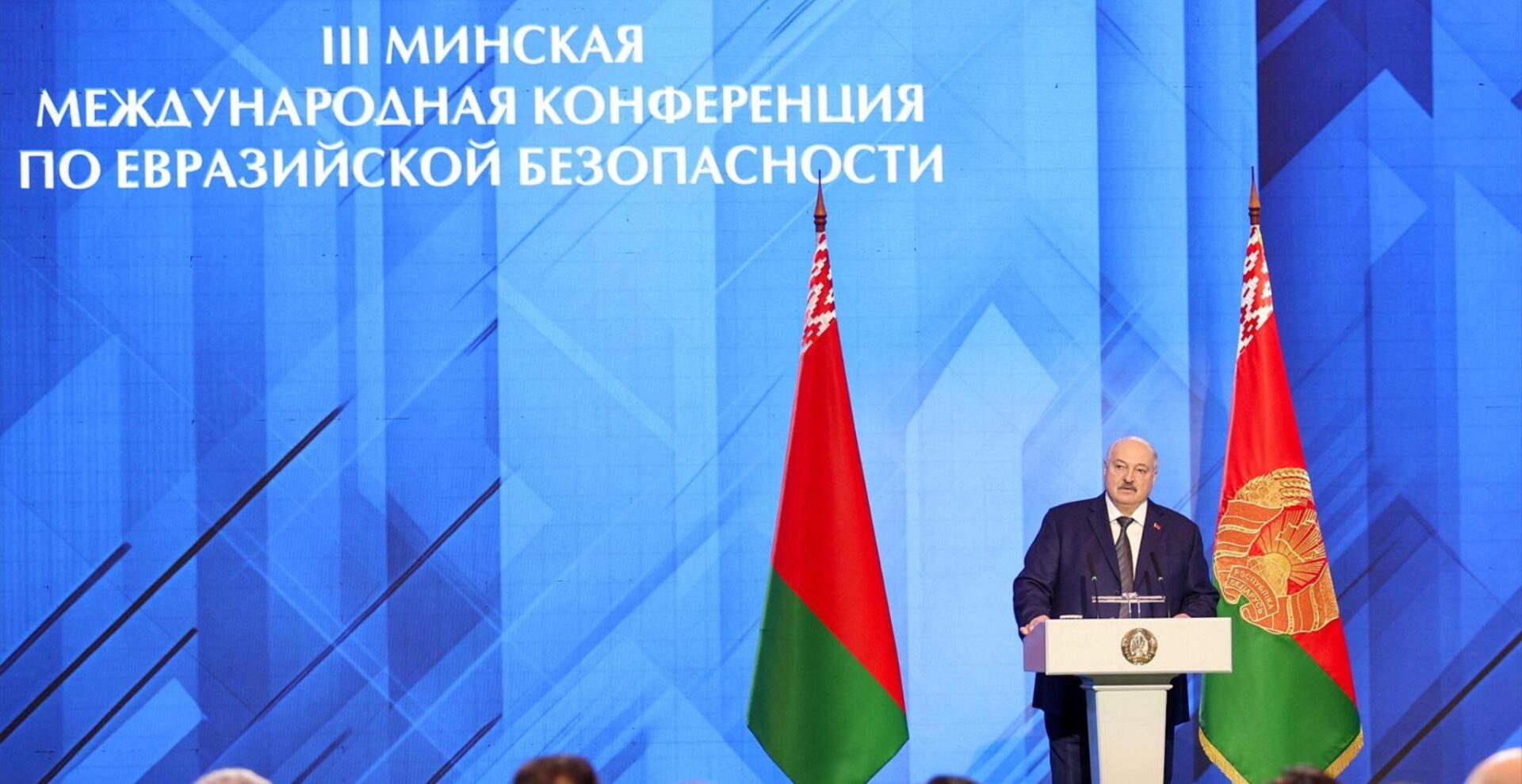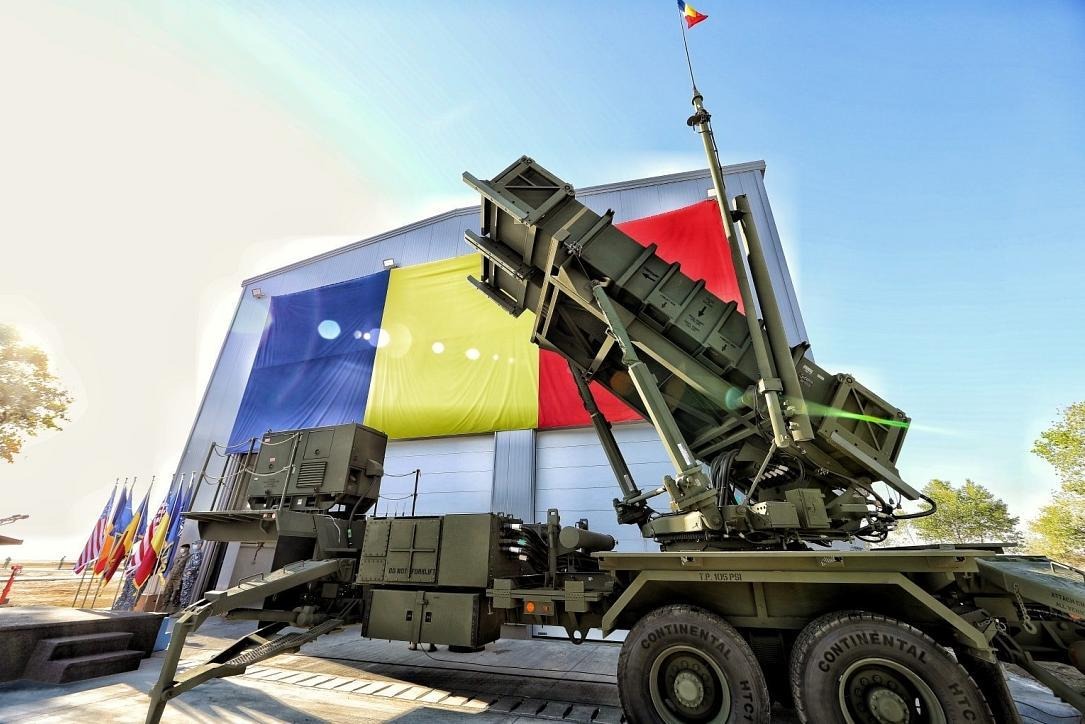
Russian Top Brass Gain Greater Political Weight
Russian Top Brass Gain Greater Political Weight
The Grom 2019 exercise of Russian strategic forces last week (October 15–17) received limited media attention, which was overwhelmed by the escalation of the Syrian calamity (see EDM, October 17) and the continuation of the Brexit drama. But this year’s Grom maneuvers were, in fact, unprecedented in both their scale and intensity. Official information is deliberately imprecise. But reportedly, launches of ballistic missiles by submarines of the Northern and Pacific fleets were coordinated with missile strikes from Tu-95MS long-range bombers and with the test of a land-based intercontinental missile; ships of the Northern Fleet and the Caspian Flotilla practiced Kalibr cruise missile strikes against onshore targets; and S-400 surface-to-air missile systems in Crimea defended against a simulated air attack (Rossiiskaya gazeta, October 17). This complex test of the whole range of Russian capabilities highlights achievements in preparations for a full-scale nuclear war (Ezhednevny Zhurnal, October 17).
During the exercise scenario, President Vladimir Putin performed his role as the commander-in-chief, ordering the missile launches by pushing buttons on a supercomputer in the National Defense Control Center, which was constructed five years ago on the order of Defense Minister Sergei Shoigu (RIA Novosti, October 17). The Russian minister of defense, in his current post since 2012, has steadily fortified his domestic political position: this year, Putin found it appropriate to celebrate his birthday in the Siberian taiga solely (aside from about a hundred bodyguards) in the company of “naturalist” Shoigu (Moskovsky Komsomolets, October 7). The Tuva-born Shoigu first appeared on the Russian political arena a whole decade before Putin, and he has managed to maintain a steady level of public trust and a remarkably low level of mistrust. This is in contrast, for instance, with Prime Minister Dmitry Medvedev, who is mistrusted by about a third of respondents and disapproved by about two thirds (Levada.ru, October 17).
Shoigu understands the value of public relations. He was the only high-level politician who attended the funeral of famous Soviet cosmonaut Aleksei Leonov (RIA Novosti, October 15). Moreover, he regularly advertises his traditional conservative values and has patronized the construction of a massive cathedral for the Armed Forces (TV Zvezda, October 2). Carefully staging his public appearances, Shoigu avoids speaking with journalists; therefore, his recent lengthy interview to a Moscow tabloid received wide attention (Moskovsky Komsomolets, September 22; see EDM, September 26). He widely and comprehensively praised his own achievements in modernizing the military but preferred to omit such high-resonance setbacks as the explosion of a newly-designed nuclear-propelled missile near Severodvinsk last August (Novaya Gazeta, August 20). The mainstream newspaper Izvestia published a mildly critical response to that interview, pointing out that many military reforms had been initiated and executed before Shoigu’s appointment. That article disappeared from the website a few hours after publication, and the author was fired (Svoboda.org, September 25).
Vanity and intolerance to criticism are characteristic features of Shoigu’s leadership, but he also knows how to camouflage his ambitions—and how to wage information operations. Last year, he established in his ministry the Main Military-Political Directorate and made General Andrei Kartapolov, a former commander of the Russian forces in Syria, its head and a deputy minister (Nezavisimaya Gazeta, December 12, 2018). This directorate manages relentless propaganda campaigns, which make it possible for Shoigu to shrug off such spectacular failures as, for instance, the attempted and botched assassination (March 2018) in the United Kingdom of former Russian spy Sergei Skripal, whom Putin condemns as a traitor (RIA Novosti, October 7, 2019). That still-unfolding scandal has focused several international investigations into the activities of Russian military intelligence—the Main Intelligence Directorate (GRU), one of the old Soviet special services subordinated to the General Staff—which has acquired new clandestine operations capabilities, ranging from cyberattacks to coup attempts (New Times, October 15). These investigations have established that the GRU is responsible for recruitment and training of mercenaries for illegal “private” military enterprises (such as the infamous Wagner Group, associated with Putin-linked entrepreneur Yevgeny Prigozhin), which then are deployed to carry out various dubious tasks, from raids in Syria to asset seizures in Africa (Novaya Gazeta, October 3).
Shoigu remains above these ignominious intrigues and seeks to exploit Putin’s new passion for nuclear “superweapons” (see EDM, March 1, 5, 2018 and February 21, 26, 2019) in a bid to expand the defense budget and prevent cuts (Vedomosti, September 22). Putin, however, remains wary of repeating the Soviet blunder of overly prioritizing the military-industrial complex and insists that modern weapons acquisitions by Russia had already peaked (Kommersant, October 18). Shoigu can find some consolation in the approval of his plan to consolidate all military construction under one super-corporation subordinated to the Ministry of Defense (Vedomosti, October 18). This centralization grants military bureaucrats control over rich financial flows; the recent arrest of a deputy chief of the General Staff cannot check such flourishing corruption (RBC, October 17).
One of Shoigu’s particular talents is his ability to induce loyalty in the top brass and respect in the officer corps, thus contributing to greater cohesion of the Russian Armed Forces compared with other state power structures—including the “omnipotent” Federal Security Service (FSB), which was recently damaged by multiple corruption scandals (Kommersant, October 1). This institutional unity, cemented by cultivated combat camaraderie, likely means that the military will be one of the main political forces shaping the transformation of Russia’s ruling regime in the medium term, after Putin’s departure (Carnegie.ru, October 3). Shoigu is cautious not to reveal his ambitions and to present the expanding militaristic propaganda as promotion of “patriotic” causes and conservative values (Svoboda.org, September 28).
Russia has a rich tradition of over-investing in military power as well as numerous examples of palace coups executed by bold and purposeful generals; but the Russian state has no experience with direct military rule (Rosbalt, October 15). Shoigu is perfectly aware that Putin’s courtiers and oligarchs oppose the top brass obtaining and monopolizing supreme political power and would much prefer a continuation of the stagnant reign. The hidden demand for change might, however, explode suddenly and forcefully, propelling forward Russia’s versions of such unorthodox leaders as Volodymyr Zelenskyy of Ukraine or Nikol Pashinyan of Armenia. Preempting this type of turmoil could become a rational political choice for the anxious stakeholders of decaying “Putinism,” and Shoigu carefully portrays himself as the safest pair of hands. Footage of police failing to contain crowds in the streets of Hong Kong, Barcelona, Beirut and Santiago-de-Chile are forcing some Russian elites to think about tanks—and about the authority to move them.


